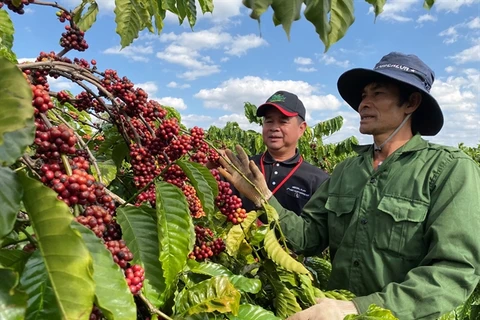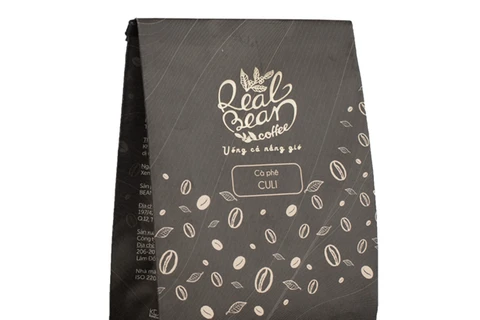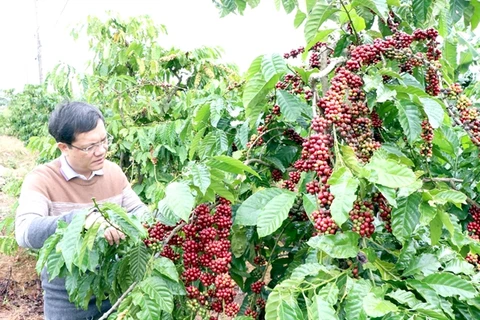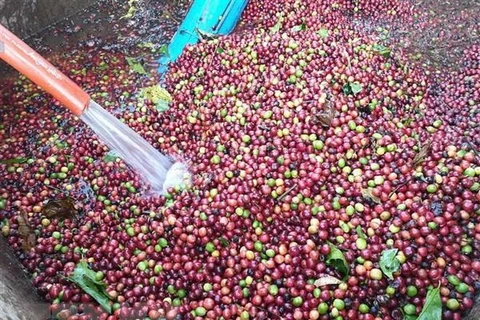 Vietnam gains 2.7 billion USD from shipping an estimated 1.7 million tonnes of coffee abroad in 2020. (Photo: VNA)
Vietnam gains 2.7 billion USD from shipping an estimated 1.7 million tonnes of coffee abroad in 2020. (Photo: VNA) Coffee is among ten key products of Vietnam, and is in top six products with export value topping 3 billion USD each year.
The country has 664,000 hectares of coffee plantations with a yield of 1.5 million tonnes per year, 93 percent of which are grown with coffee robusta while the remainder being Arabica. Vietnamese coffee has been present in 80 countries and territories worldwide.
However, experts at the conference held on December 29 to review the national high-quality coffee development product said although Vietnam has been renowned for its coffee volume, the country has not gained reputation for its coffee quality due to impacts of the world’s coffee value, and low proportion of high-added value products.
According to deputy head of the MARD’s Department of Science, Technology and Environment Nguyen Quang Tin, in a bid to support the coffee sector to improve value and maintain its position as the world’s second coffee producer and exporter amidst fierce competition, Prime Minister Nguyen Xuan Phuc approved Decision No.787/QD-TTg dated June 5, 2017, listing coffee in the programme to develop national products until 2020.
Deputy Minister of Agriculture and Rural Development Le Quoc Doanh said the coffee sector has developed in a more sustainable and effective manner in recent years, particularly after the ministry approved the coffee re-plantation project.
The project aimed at 120,000 hectares of coffee under re-plantation by 2020; however, more than 150,000 hectares have been re-cultivated so far.
Particularly, the World Bank-funded project “Vietnam Sustainable Agriculture Transformation” worth 300 million USD has shown effective since it supported sustainable development of the coffee sector, Doanh highlighted.
He said there is a huge workload to ensure coffee sector’s sustainable development, including choosing the best variety, promoting mechanisation, intercropping plants, and improving management of variety.
The coffee sector have huge export opportunities as Vietnam has signed 14 free trade agreements so far, especially the EU-Vietnam Free Trade Agreement is said to help expand markets for the Vietnamese staple, he added./.
VNA























